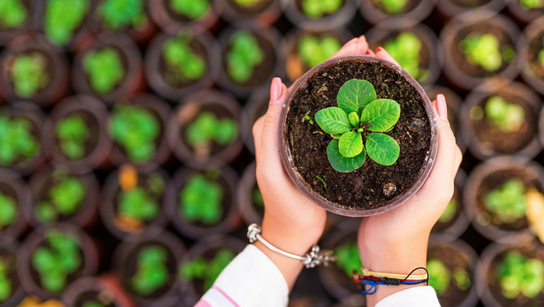Plants are essential to the Earth’s environment and the human race because plants provide oxygen, food, shelter, medicine, fiber, and fuels. However, there are more ways plants benefit people.
Horticultural Therapy is used to help with mental health by reducing depression, anxiety, and stress, calming aggressive behavior, and helping with dementia. Horticultural Therapy may be unfamiliar to most people because people think about physical and psychological treatment when therapy is mentioned.
Horticultural Therapy was first started in the 19th Century by Dr. Benjamin Rush, known as the Father of American Psychiatry. His experiment included documenting the positive effects of gardening on his mental health patients, which was the first experiment using horticulture. During the 1940s and 1950s, hospitalized war veterans used the same practice to help with mental disorders such as PTSD. The experiment worked tremendously and opened the idea of vocational practices and jobs for the veterans.
There are many ways gardening can help with mental health, including improving memory. Adults aged 60 to 70 who garden have a 36 percent less chance of having dementia than nongardeners. Because gardening improves the senses of touch, taste, and smell, relaxation of the mind begins to happen.
Gardening can also improve anxiety and depression. Having a garden to care for can help with responsibility, purpose, passion, and self-consciousness, and help some people feel as if they matter.
Gardening can also help with social skills. People active in a garden have time to relax and ponder. Provoking curiosity results in inviting conversations with others. Working with someone in a garden can also create bonds which can lead to open and honest communication.
Gardening can also improve attitudes and moods. Taking care of a garden can give a person a sense of peace and contentment. Being in a quiet place can take away negative feelings and allow a person to focus on the positive, leading to a new outlook on life.
Another way gardening can help with mental health is by providing higher confidence and self-esteem. Taking care of a garden and watching it grow can give people a sense of pride. Seeing all the work they have done and watching their garden thrive will boost self-confidence and help them feel less depressed.
Although few people think about gardening when considering mental health therapy, it has proven effective. Horticultural Therapy has been performed by qualified and certified physicians for the past 200 years and can help the mental health of others and the environment.
by Mikayla Rainey

